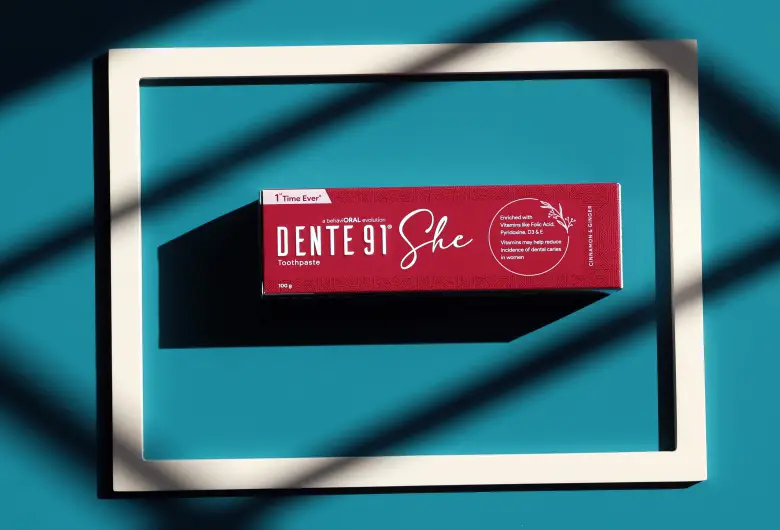Oral health is essential for women because it can affect overall health, well-being, and pregnancy outcomes. For example, poor dental hygiene can lead to tooth decay, gum disease, and other oral infections, which can cause pain and other difficulties. Additionally, oral health can be linked to other health conditions such as heart disease, diabetes, and respiratory infections. Furthermore, oral health is also essential for pregnant women, as studies have shown that gum disease can be associated with preterm labor and low birth weight.
Good oral hygiene practices can improve overall health, as research has linked poor oral hygiene to an increased risk of heart disease, stroke, and other health problems. Here are seven ways to improve oral and dental hygiene at home:
1. Brush teeth twice a day with fluoride toothpaste: Brushing your teeth twice a day with fluoride toothpaste can help remove plaque and food particles that can lead to tooth decay and gum disease. It is important to brush for at least two minutes and use a soft-bristled toothbrush to avoid damaging the gums.
Trivia – The ancient Egyptians were one of the first to practice oral hygiene, using a combination of honey and ashes to clean their teeth. The ancient Egyptians made the first toothpaste around 5000 years ago from a mixture of powdered ashes, myrrh, and pumice.
2. Floss daily: Flossing is essential to oral hygiene because it removes plaque and food particles from between teeth that a toothbrush cannot reach. Flossing should be done at least once a day, preferably before brushing.
3. Use an antiseptic mouthwash: Antiseptic mouthwash can help kill bacteria that can cause bad breath, tooth decay, and gum disease. Using a mouthwash containing fluoride to strengthen tooth enamel is essential.
Trivia – Replace your toothbrush every three to four months or sooner if the bristles are frayed. A worn toothbrush is less effective at removing plaque and bacteria.
4. Scrape or brush your tongue: The tongue is a breeding ground for bacteria, which can cause bad breath and contribute to tooth decay and gum disease. Scraping or brushing the tongue can help remove bacteria and freshen your breath.
5. Limit sugary and acidic foods and drinks: Foods and beverages high in sugar and acid can lead to tooth decay and tooth enamel erosion. Limiting sugary and acidic foods and drinks can help protect the teeth.
6. Don’t smoke or use tobacco products: Smoking and using tobacco can lead to tooth stains, bad breath, tooth decay, and gum disease. Quitting smoking or using tobacco products can help improve oral health.
7. Visit the dentist regularly: Regular dental checkups are essential to detect and prevent oral health problems. Therefore, it is recommended to visit a dentist every six months for professional cleaning and to have teeth checked for cavities and signs of gum disease.
Also Read – Home Remedies for Dental Fluorosis to Get Your Beautiful Smile Back
Good oral hygiene at home is essential for maintaining healthy teeth and gums and preventing dental problems. Remember, oral hygiene is about having a bright white smile and protecting your health.
Trivia – Chew sugar-free gum after meals. Chewing sugar-free gum after meals can stimulate saliva flow and neutralize acid, which can help protect your teeth from decay.
Hormonal Changes Have an Impact on Women’s Oral Health.
Hormonal changes in women can have a significant impact on oral health. For example, during pregnancy, hormonal changes can cause an increase in plaque buildup, leading to gingivitis, a form of gum disease. Pregnancy can also cause changes in the mouth, such as increased sensitivity and bleeding of the gums.
Menopause can also lead to changes in oral health, such as a dry mouth and a decrease in bone density, which can increase the risk of tooth loss. Therefore, women must maintain good oral hygiene and visit the dentist regularly, especially during hormonal changes.
To address the issue of oral hygiene in women, a unique toothpaste, “Dente91 She,” was launched recently. The toothpaste is enriched with Lactoferrin, Vitamin B9 (Folic Acid), Vitamin B6, Vitamin D3, Vitamin E Acetate, etc., which support oral health. Regular usage of the product can reduce plaque and hypersensitivity and repair cavities. This antibacterial and antifungal can be purchased on Amazon and Buy91.

1. Fluoride: Fluoride is an essential ingredient in toothpaste as it helps to prevent tooth decay. Look for toothpaste that contains fluoride, as it will help to strengthen your teeth and protect them from cavities.
2. Sensitivity: If you have sensitive teeth, look for toothpaste specifically formulated for sensitive teeth. They contain ingredients that can help to reduce pain and discomfort associated with tooth sensitivity.
3. Whitening: If you want to whiten your teeth, go for toothpaste that contains whitening agents. However, it’s important to note that this toothpaste may not suit people with sensitive teeth.
4. Tartar control: Tartar is a buildup of hard mineral deposits on the teeth. If you are prone to tartar buildup, look for toothpaste that contains ingredients that can help control tartar.
5. Gum health: If you have problems with your gums, look for toothpaste with ingredients that can help improve gum health, such as fluoride and triclosan.
6. Ingredients: If you have any allergies or sensitivities, it’s essential to read the ingredients list of the toothpaste to ensure that it doesn’t contain any ingredients that may cause a reaction.
7. Toothpaste: It’s also important to note that toothpaste is not interchangeable and should be used as directed by the dentist or per the label instructions.
FAQs
Q: How does pregnancy affect oral health?
A: Pregnancy can cause an increase in hormones, which can lead to a condition called pregnancy gingivitis, characterized by swollen and bleeding gums. Pregnant women need to maintain good oral hygiene and visit the dentist regularly.
Q: Are there any oral health concerns specific to menopause?
A: Menopause can cause a decrease in estrogen levels, which can lead to a dry mouth and an increased risk of tooth decay. It’s important for women going through menopause to stay hydrated, maintain good oral hygiene, and visit the dentist regularly.
Q: Can birth control pills affect oral health?
A: Birth control pills can cause a decrease in the amount of saliva in the mouth, leading to a dry mouth and an increased risk of tooth decay. It’s necessary for women taking birth control pills to maintain good oral hygiene and visit the dentist regularly.
Q: How do you maintain oral hygiene while wearing braces?
A: Wearing braces can make cleaning your teeth and gums more difficult. It’s important to brush and floss regularly, using special tools like interdental brushes and orthodontic floss threaders to reach all areas of the teeth and gums. It’s also important to visit your orthodontist and dentist regularly for checkups and cleanings.

